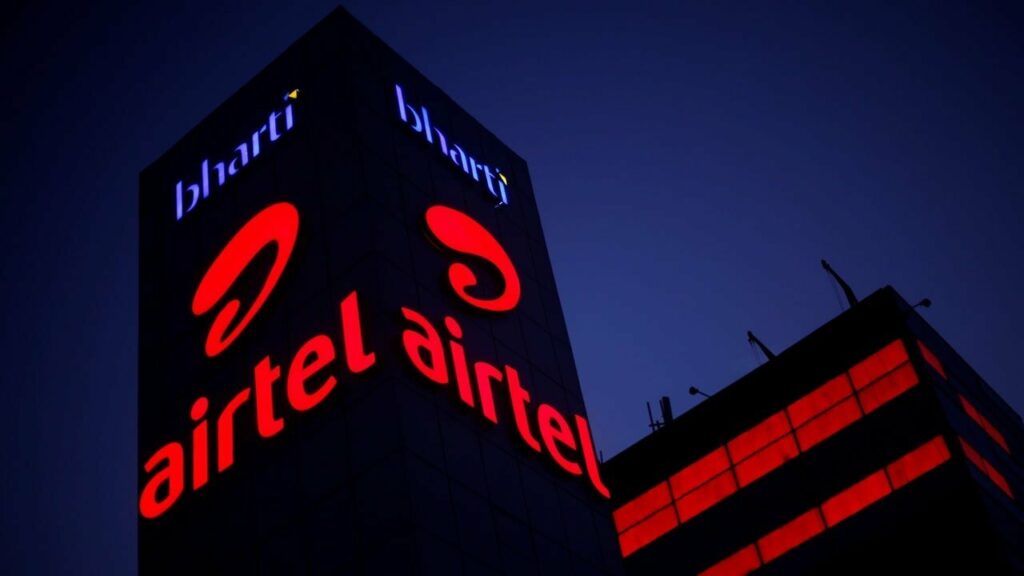According to Bharti Airtel, if the reverse pricing of 5G is more during the auction then there will not be enough money for us to develop the 5G ecosystem. In such a situation, we can avoid the 5G auction process.
The Department of Telecommunication (DOT)may initiate the 5G spectrum auction process from January to March next year. But if the price is kept too high, then Bharti Airtel can distance itself from the 5G spectrum auction process. This was revealed on Wednesday by the top official of the telecom company.

Bharti Airtel CEO Gopal Vittal said that the company would stay away from the 5G auctions if they happened next year as the spectrum offered at the current prices were not affordable for the company. The 5G ecosystem is yet to develop here and the prices are very high and we can’t afford them,” Vittal said during the company’s post-earnings call. He said that the company would not buy the airwaves at the current prices at the rates suggested by the Telecom Regulatory Authority of India (TRAI).
The Company Cited Lack of Funds
Gopal Vittal, managing director, and chief executive officer of Bharti Airtel, India, and South Asia, said the company was working on the spectrum auction strategy. Also, the company is working on radio frequencies below 1000 MHz, to improve the network problem inside the building and in rural areas. He said that we have come to know that the Department of Telecommunication can start the auction process from January to March next year. If the reverse pricing of 5G is high during the auction, there will not be enough money for us to develop the 5G ecosystem. In such a situation, we can avoid the 5G auction process.
Bharti Airtel Expansion Plan on 4G Service
TRAI has offered a price of Rs 492 per Hz spectrum for the 3,300 to 3,600 Mhz band. Telecom operators desirous of purchasing ReadyWave for 5G service will have to pay a minimum of Rs 9,840 crore on a pan-India basis to buy spectrum in the 3,300-3,600 MHz band as TRAI has suggested that it be auctioned in 20 MHz block size Before this, Bharti Airtel had said that according to TRAI’s proposed pricing, the company would need Rs 50,000 crore to achieve a better quality frequency. The company can expand the 2,300 MHz bands, which is currently being used for 4G service.

Vittal also pitched for an increase in tariffs and said that the current prices were not sustainable. Bharti Airtel on Tuesday posted a net loss of Rs 763 crore for the July-September quarter (Q2). The company had posted a consolidated net loss of Rs 23,045 crore in the same quarter last year, after provisioning for the adjusted gross revenues (AGR) dues.
The company posted the highest ever rise in revenue, mainly on account of customer addition and higher data consumption. Revenues increased 22 percent YoY to Rs 25,785 crore compared to Rs 21,131 crore a year ago. Ebitda (earnings before interest, taxes, depreciation, and amortisation) margin was up 366 basis points (bps) YoY at 46 percent — the highest in at least five quarters. EBIT margin improved by 768 bps YoY at 17.1 percent.
In the India business, monthly average revenue per user (ARPU), an important matrix to gauge the telco’s performance, rose to Rs 162 from Rs 128 a year ago and Rs 157 in June 2020 quarter. Consolidated EBIT at Rs 4,412 crore (up 121 percent YoY) was much ahead of analysts’ estimates of Rs 2,616 crore. Likewise, cash profit from operations (before derivative and exchange fluctuations) surged 32 percent YoY to Rs 8,048 crore.
Airtel also announced its exit from the Ghanaian telecom market, selling its 49.95 percent stake to the Government of Ghana. Consequently, it took an impairment charge of Rs 184 crore. When asked about the suspension of interconnect usage charges, Vittal said, “All the operators are on equal footing as far as IUC charges are concerned, we don’t mind if they are done away with.”

IUC charges were a bone of contention between the telecom companies as Reliance Jio wanted these charges to be scrapped completely, whereas Bharti Airtel and Vodafone Idea (VI) wanted the levy to be continued. IUC charges are essentially payments that one telecom player pays to another telecom company on whose network the call terminates.
Earlier this year, TRAI deferred the introduction of the zero IUC charge, providing relief to telecom companies. The companies are currently paying 6 paise a minute charge on all voice calls to other networks till December 31, 2020.
